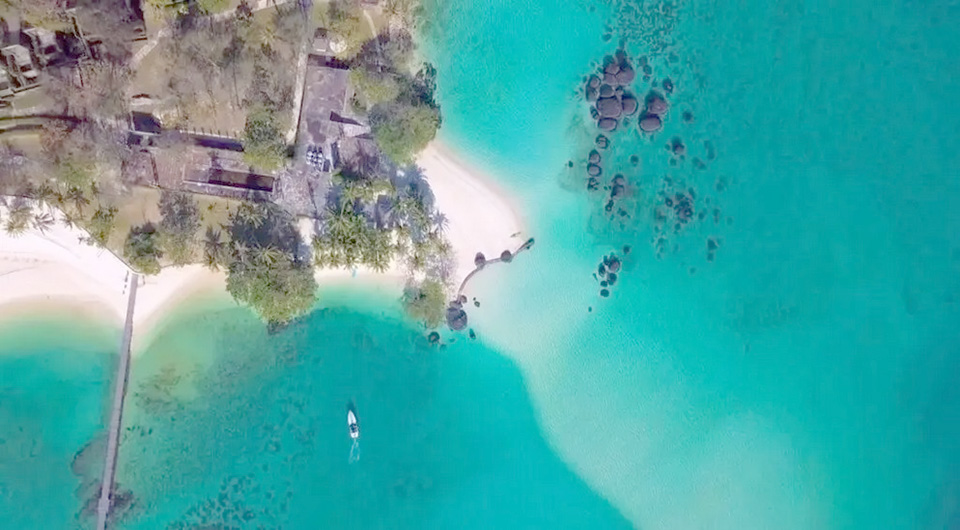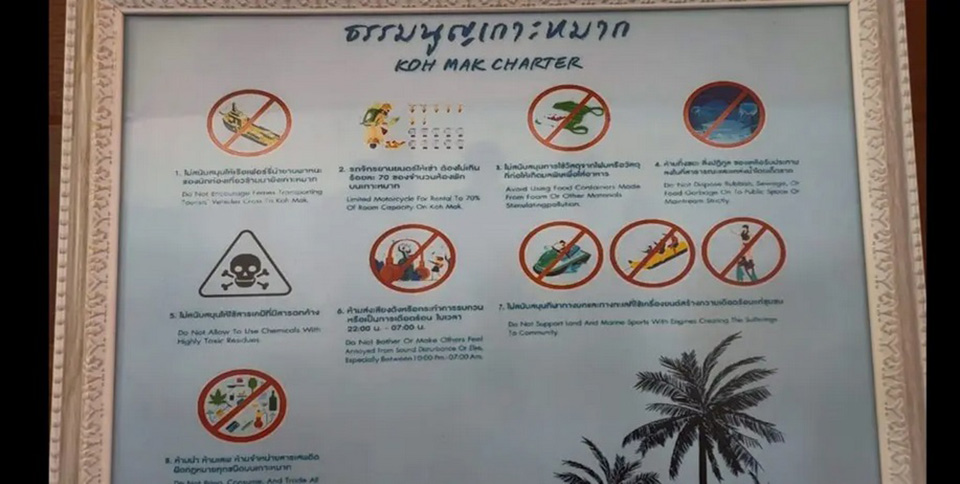
TRAT, Thailand – Koh Mak, besides its natural beauty, is also a model for eco-friendly and low-carbon tourism.
Koh Mak, a pristine island in Trat province has become a pioneer in sustainable tourism, driven by the local community’s commitment to preserving its natural environment. With a growing number of long-staying foreign tourists, Koh Mak has embraced a low-carbon approach that minimizes its ecological footprint.
Low-carbon tourism is a global trend that prioritizes sustainability and responsible travel. On Koh Mak, this philosophy is evident in every aspect of life, from restaurants that minimize food waste to the production of eco-friendly souvenirs such as tie-dye fabrics made from natural dyes and recycled materials.
“60-70% of our population are native to Koh Mak. We live here long-term. Anything that negatively impacts our community, we have to protect ourselves. We estimate that tourism brings in 80,000 to 90,000 visitors annually. Each person leaves behind a certain amount of waste, and this definitely affects our environment. We have come together as a community to create an eight-point charter. Our goal is to protect our environment and preserve our way of life while also allowing tourism to thrive,” said Thanin Suthithanakul, a business owner on Koh Mak Island.
To ensure the long-term sustainability of tourism on the island, in 2018, the community of Koh Mak developed an eight-point “Koh Mak Charter”. This charter outlines a vision for responsible tourism that respects the island’s natural and cultural heritage. Key principles include minimizing carbon emissions, reducing waste, and preserving the island’s unique character.

Key points of the charter:
No Ferries Carrying Vehicles: Reduce carbon emissions and traffic congestion by limiting vehicle transport to the island.
Limited Rental Motorbikes: Cap the number of rental motorbikes to control noise pollution and traffic.
No Styrofoam or Polluting Food Containers: Protect marine life and reduce waste by banning harmful packaging materials.
No Littering: Keep the island clean and beautiful by enforcing strict litter laws.
No Loud Music or Disturbances: Maintain peace and tranquility by limiting disruptive activities.
No Motorized Water Sports: Protect coral reefs and marine life by prohibiting harmful water activities.
No Chemicals: Minimize environmental impact by banning harmful chemicals.
No Drugs: Ensure the safety and well-being of visitors and residents by prohibiting illegal drug activities.
By embracing low-carbon practices, Koh Mak serves as a model for other destinations seeking to balance economic growth with environmental protection. The island’s success demonstrates that sustainable tourism can be both profitable and rewarding for local communities. (TNA)








